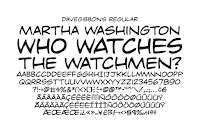I stopped looking back on 2016 about three months ago, when I stopped keeping a regular diary. I like to keep a diary, because I like to have a sense of my own history. Just as everyone uses (and should use) history to make sense of their present, a diary is something I can use to keep track of how I think, what I make of events as they occur, and to trip myself up when I realise I could have approached things in a better way.
I had stopped keeping a diary because the events of this year became a bit, well, overwhelming, as I am sure it did for many. Numerous reviews of the year centred on the political world events – Brexit, Trump, increasing nationalism, Syria – and the deaths of people who were not done with life, like George Michael and Carrie Fisher, to name only two from just the last week. There is sense of, “I’ll come back to this later” – needing that bit of distance, to have the right perspective of things, before you can start to make sense of them.
What you can do is hope that 2017 will be a better year. Certainty seems a bit passé these days, as the UK voted for Brexit, but not what kind of Brexit, and there are people in the United States fearing for what their next President might have for them in the coming weeks. You can do all you can to make 2017 the best year for yourself, but you hope it can be a better year for all. The one discouraging thing about hope is that I thought it invoked a feeling of trust, only for my dictionary to relegate that to a secondary meaning, listing it as “archaic.”
Therefore, in 2017, I hope that:
…people prove my dictionary wrong.
…I keep a diary for every day, even on those rare days when nothing really happened.
…people remember that populism works both ways – if your leader does not work for you, you can get them out
…Brexit is a success for everyone, because it has to be, and the bed we have to lie in is not too hard, and not too soft
…the next time we have to vote for something, we are given the implementation plan beforehand
…people stop using the Nazis as a comparison for anything they don’t like – overuse means you start looking for something worse which, hopefully, doesn’t exist
…people get bored of talking about the political “Left” and “Right,” as it’s too simplistic, and too dismissive a label to slap across people
…the following hashtags are used online: #brexitbed #notaunicorn #trumpmeansfart #wiggledontgiggle #pumpthechump
…people make up their minds on what public toilets transgender people can use, before I piss on their shoes.
…the United Kingdom of Great Britain and Northern Ireland remains as the United Kingdom, the home of the BBC, the NHS, Penguin Books, free art galleries, grumbling about the weather, queueing, and unidentified items in the bagging area.


















